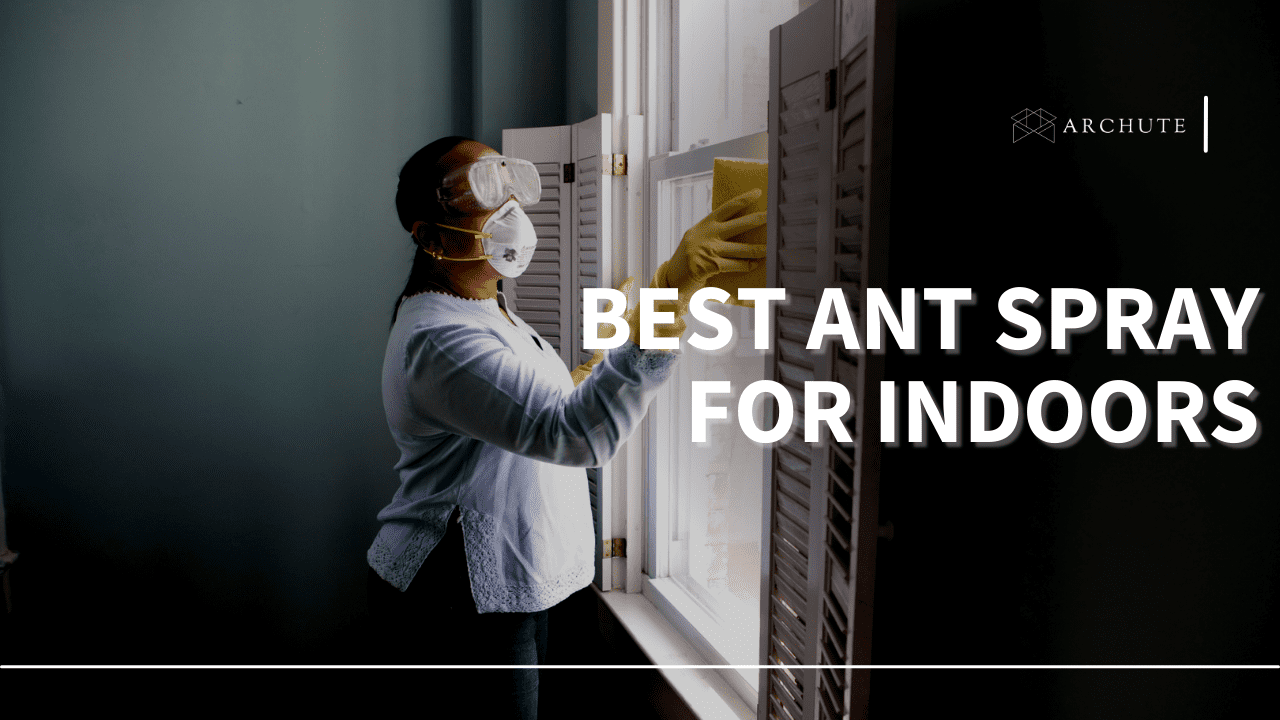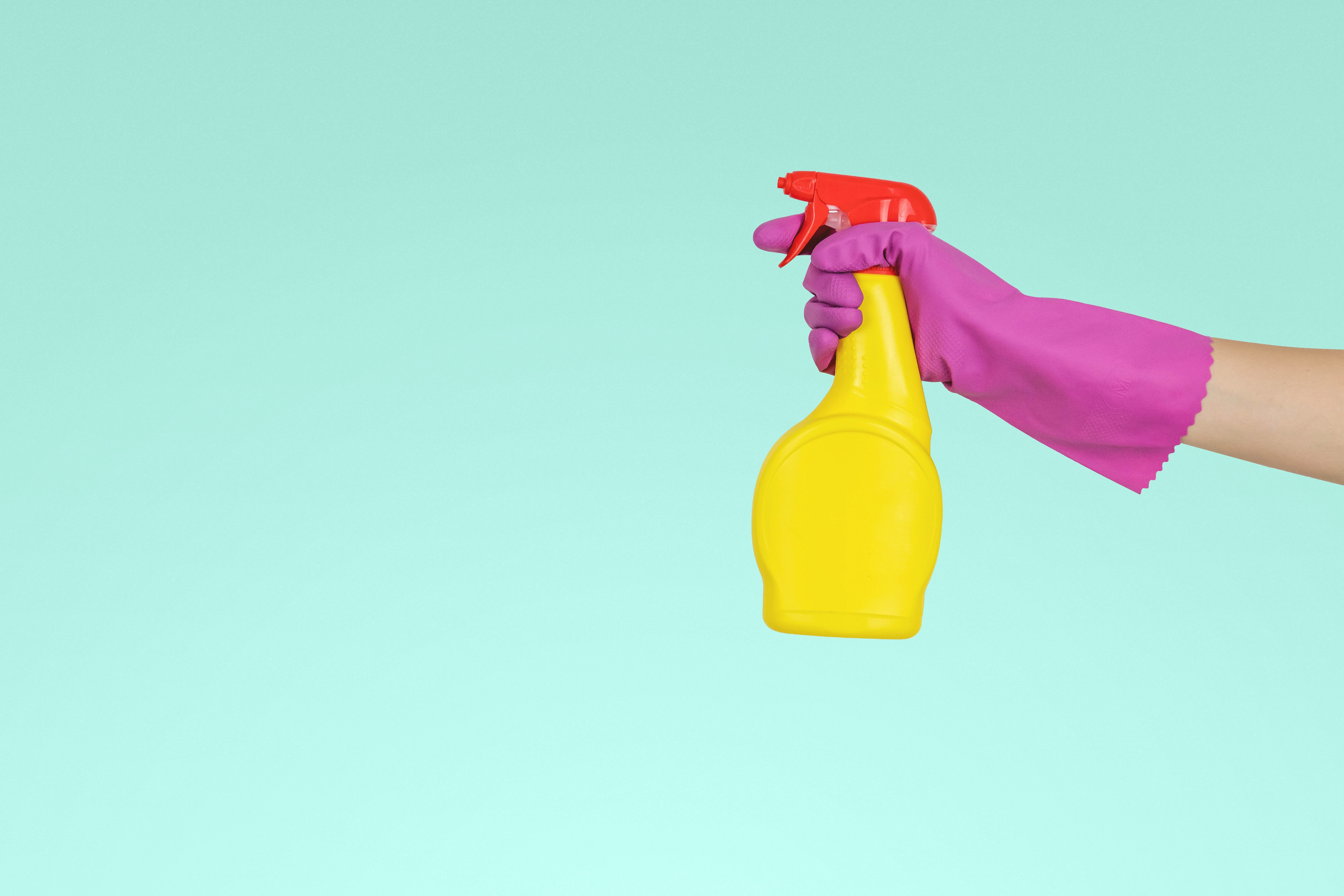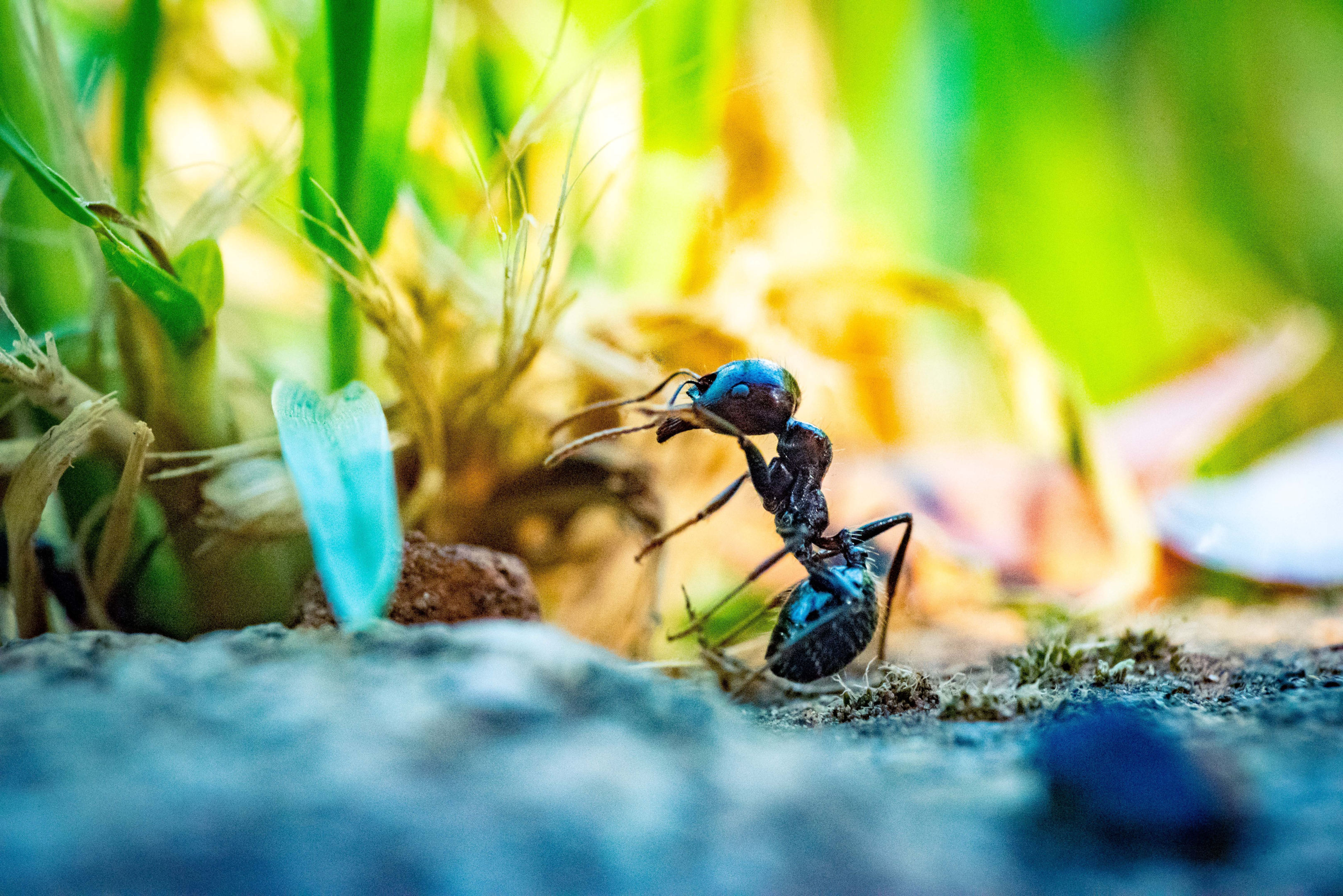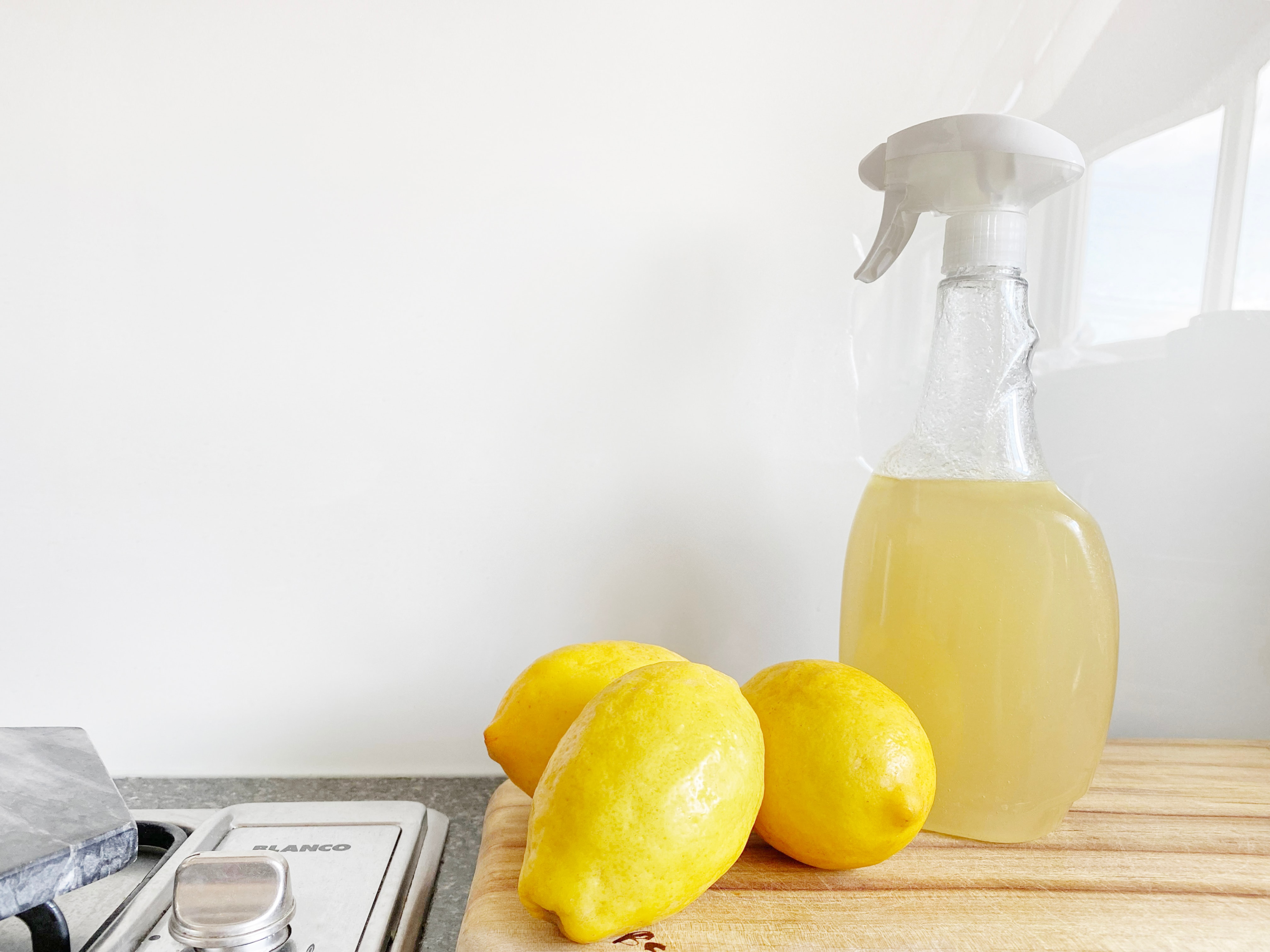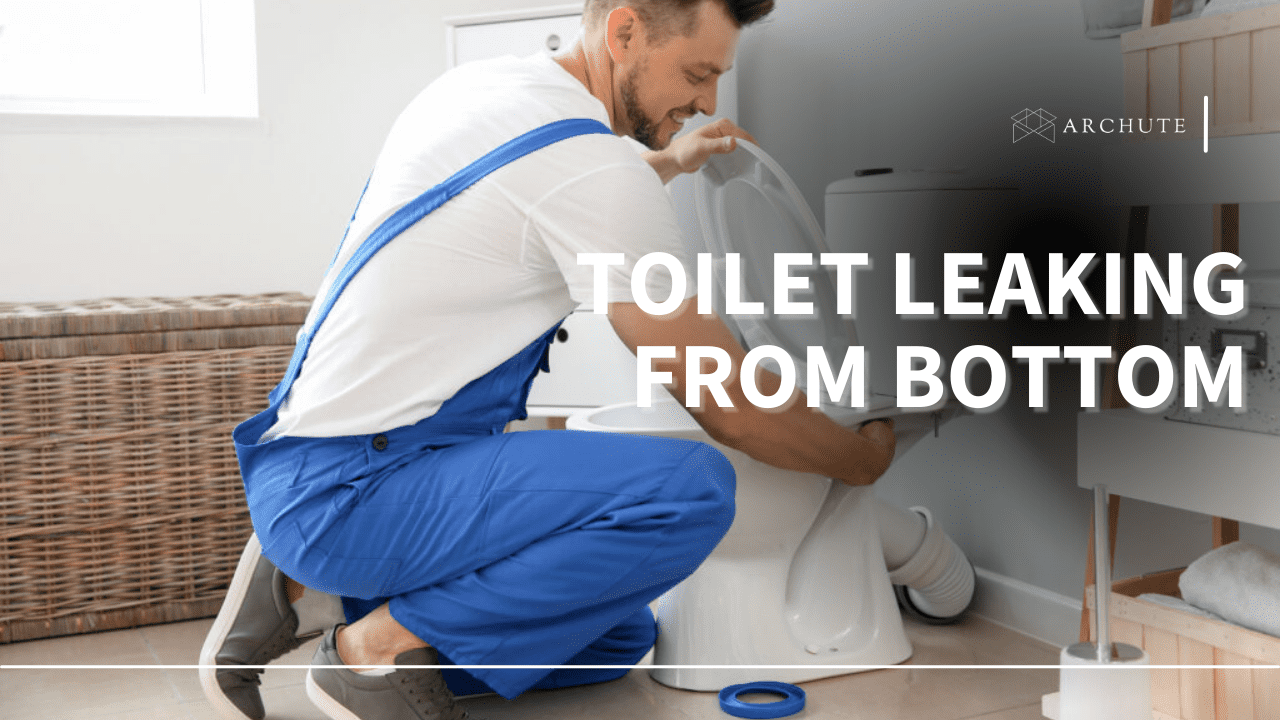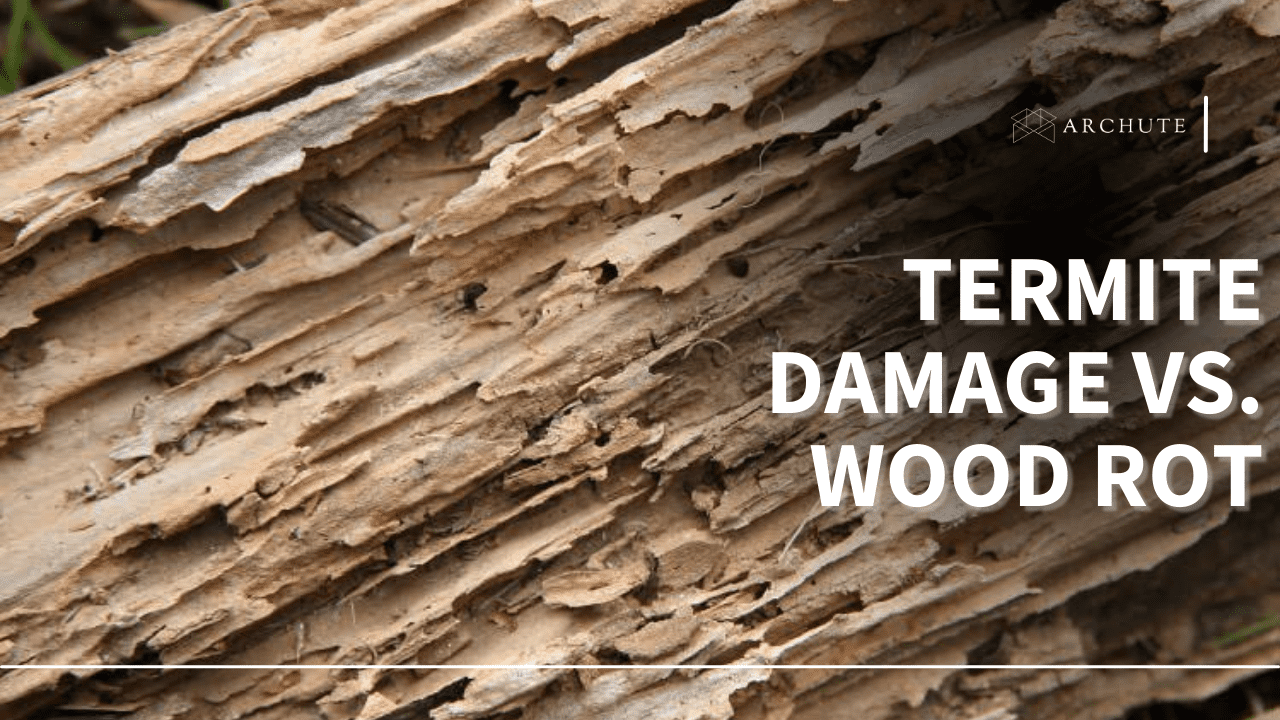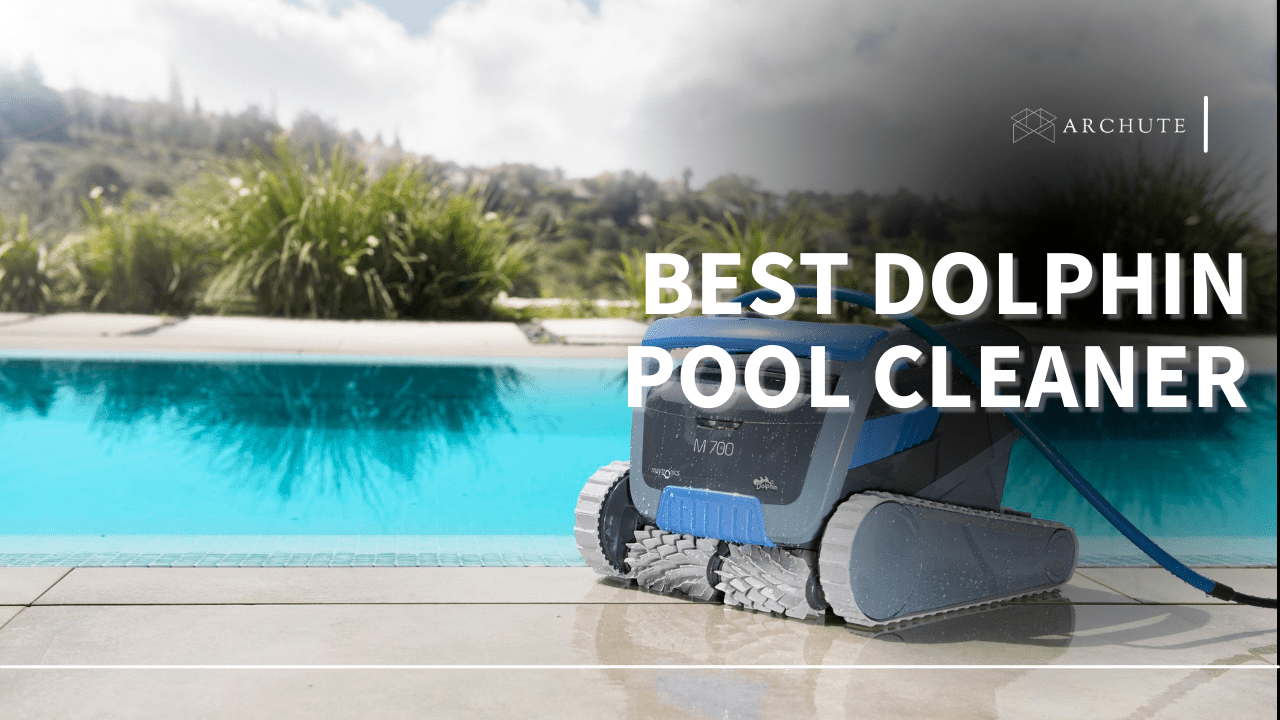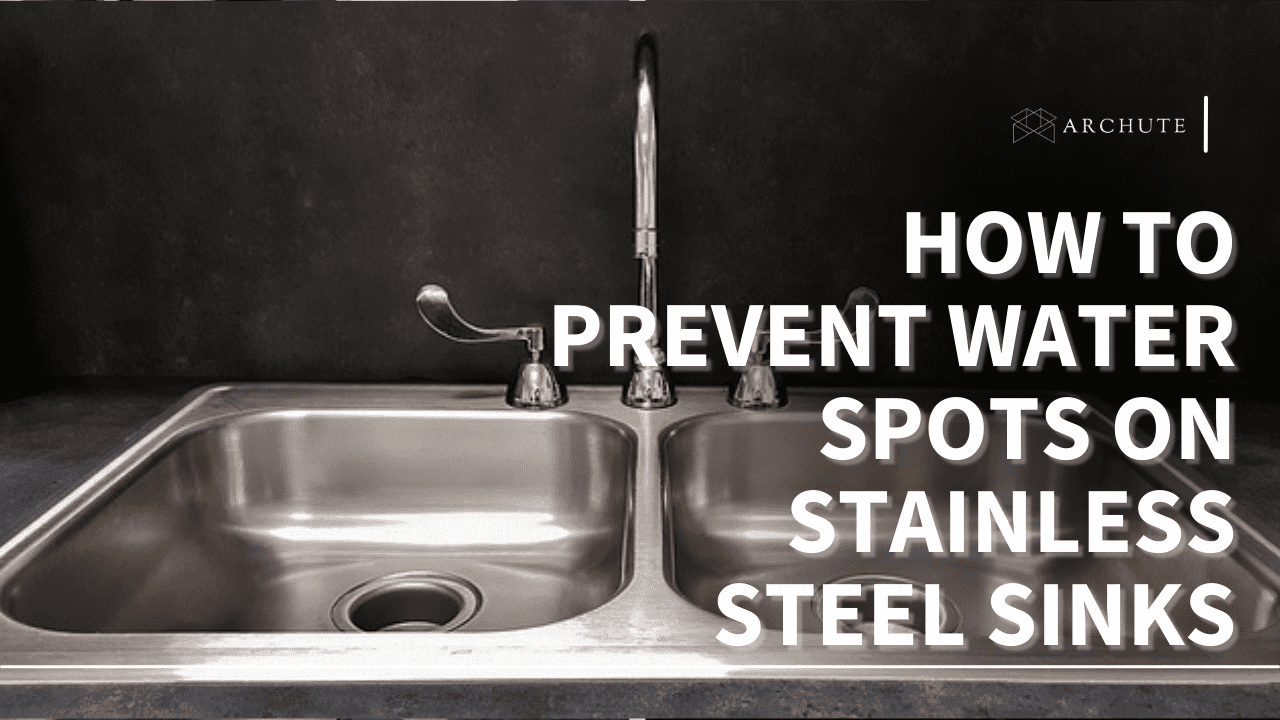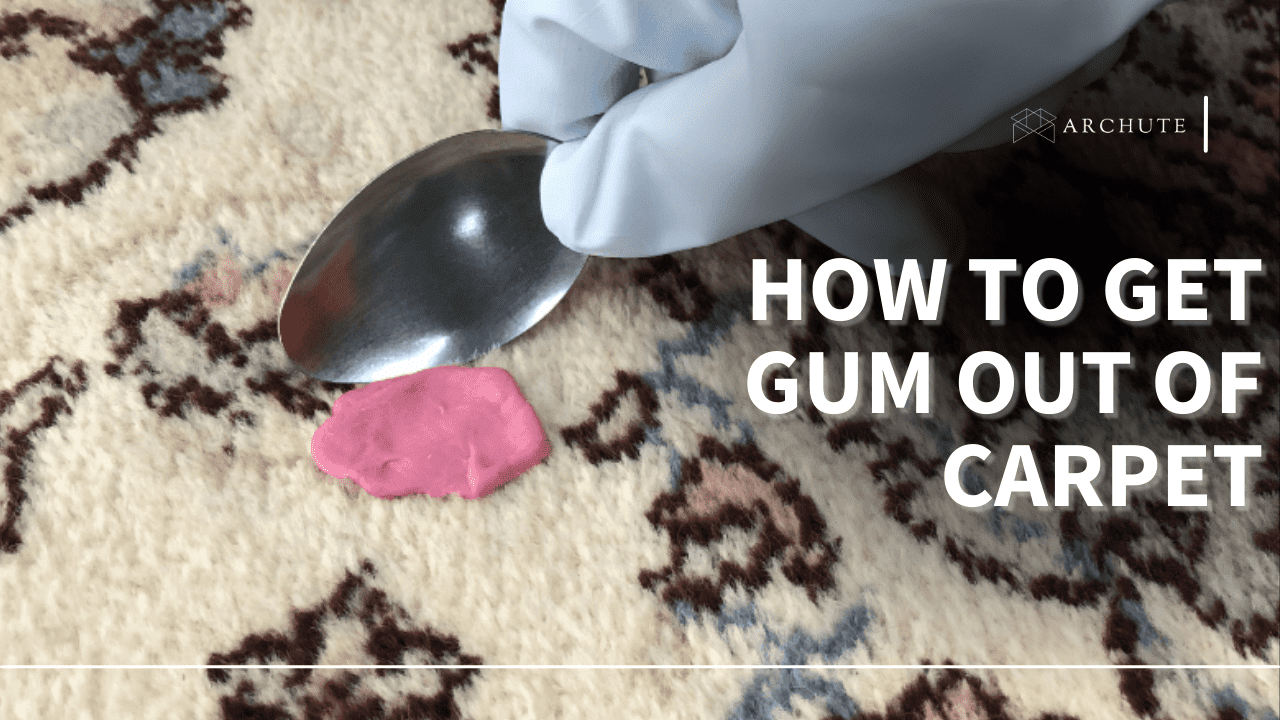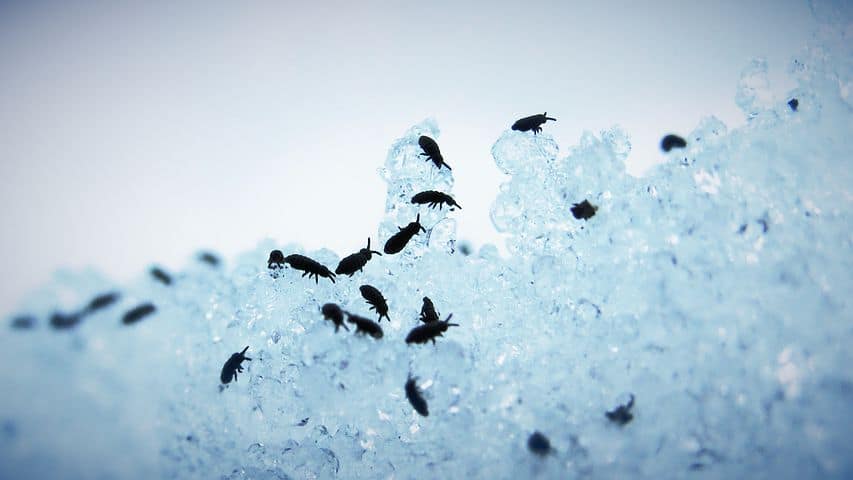The ant is a common household pest. With over a thousand different kinds of ants in the United States, most people will inevitably have to deal with an infestation at some point. Nobody enjoys living alongside insects, whether a line of tiny black ants leading to the kitchen or the entire colony of enormous carpenter ants on the deck.
For that reason, in this post, we've compiled all the best advice we've come across for permanently eliminating ant infestations. Below is the best ant spray for indoors and a comprehensive guide where you will find factors to consider when purchasing most ant sprays.
Can You Use Ant Spray Indoors?
Most people would rather not study the science behind ant spray, but understanding how it functions is important for picking the right products.
Most sprays contain contact poisons that are absorbed through the skin upon contact. Therefore, to keep surfaces free of ants for an extended period, you may wish to use a spray that can kill them or keep them away.
Another consideration is whether or not you want your kids or pets to come into contact with it. The active chemicals and the secondary compounds that help the spray to adhere are crucial to its effectiveness.
If you're looking for a long-term solution, your best bet is probably an ant bait or a dust delivery system. However, since these insecticides aren't designed to eliminate ants instantly, they are fundamentally different from conventional options.
Ant baits are made to coat ants with a poison that takes time to take effect so that they can bring it back to their nest and eradicate the colony there. Sprays work best when combined with baits or other techniques to eliminate scouts in a less dangerous way for the home if you have a long-term infestation.
Keep reading to learn the best ant sprays for indoor use.
Rank | Product Image | Brand Name | Link |
|---|---|---|---|
1 | |||
2 | |||
3 | |||
4 | |||
5 |
1. Raid Ant and Roach Killer, Aerosol Spray with Essential Oils
- Kills ants, roaches and over 20 household pests
- Great for use around kids and pets, when used as direct
- Kills insects quickly
- Effective roach and ant killer (22,200) to use indoors, including...
- Made with lemongrass extract and geraniol synthesized from pine...
It was wise for us to keep a can of Raid on hand if ants were a problem in our area. The kitchen, living room space, and other rooms where pets or young children congregate are safe places to use this aerosol spray because it kills on contact and is non-toxic.

The plant-based composition provides instant relief from pests thanks to the inclusion of essential oils like lemongrass. The potency of the smell cannot be denied. However, the smell is not without certain drawbacks.
Pros:
Cons:
2. Aunt Fannie’s Ant Spray for Indoor Use
- Take care of business without harsh chemicals or nasty odors with...
- Intended for indoor use where ants appear
- Safe around children and pets when used as directed
- Hard working with a fresh scent that actually smells good; each...
- Manufactured in the USA; free from harsh chemicals

Image Source: auntfannies.com
Aunt Fannie's Ant Remedy is highly recommended for those who have furry family members at home. Since it is chemical-free, it can be used in the presence of children and dogs without worry.
There will be no lingering chemical odors when the marching insects are killed by this formula, formulated from essential oils. As soon as you spray it on, the ants disappear, and you'll have a bug-free home.
Pros:
Cons:
3. Raid Ant and Roach Killer Fragrance-Free
- Kills on contact.
- Residual kill of ants and roaches works for up to four weeks.
- Leaves behind no lingering chemical odor.
- Has an Outdoor Fresh scent.
- Use with other Raid Defense System products to work smarter, not...

Image Source: raid.com
We've all grown up knowing that Raid is the brand for pest control in any situation. However, we have noted that older versions of Raid's insecticides aren't very effective against modern bugs, notably bed bugs.
Just keep that in mind while determining which things to buy. The good news is that Raid can be found just about anywhere and is effective as a contact killer against numerous house pests, including numerous species of ants.
We loved that it is simple to use and works well for eliminating the few pests that have invaded our home. This is appropriate for use both inside and outside.
Pros:
Cons:
4. Wondercide - Ant and Roach Aerosol Spray
- KILLS BY CONTACT. Proven to work and easy to use, this aerosol...
- PROTECT YOUR KITCHEN AND HOME. This versatile ant and cockroach...
- SAFE AROUND KIDS AND PETS WHEN USED AS DIRECTED. Because this...
- PLANT-POWERED AND POWERFULLY EFFECTIVE. Powered by plants, this...
- EASY-TO-USE. This eco-conscious bug spray can be used easily...

Image Source: wondercide.com
The ants in our home didn't stand a chance against the Wondercide Ant and Roach Spray, which gives instantaneous killing power and knockout effect. As directed, it helps us avoid or deal with a wide range of pests, such as ants, cockroaches, stink bugs, fleas, spiders, and silverfish.
We used it as a crack and crevice treatment to keep ants out permanently and a quick death spray to cut down on foraging ants. All-natural components like lemongrass and geraniol are used; no synthetic chemicals exist. Furthermore, no artificial flavors or colors have been used.
You need only point and spray to use Wondercide Ant and Roach Spray. Not only that, but it uses premium materials and is produced domestically.
Pros:
Cons:
5. Eco Defense USDA Biobased Pest Control Spray
- ELIMINATES HOME INVADING PESTS – This bug spray for home works...
- ORGANIC & NATURAL – Made with Natural, Organic, and non-toxic...
- FAST ACTING – Eco Defense is not only Fast Acting but also Long...
- SAFE – Safe to use all around your home. Eco Defense is a...
- MONEY BACK GUARANTEE - Formulated by professional exterminators...

Image Source: ecodefensestore.com
Eco-Defense is a contact killer that doesn't harm the planet. It is effective against ants and other common pests indoors or out. My research has led me to conclude that this is the greatest option for those who want to avoid using harmful chemicals around children and pets.
Anyone with pets, small children, or allergy sensitivities will benefit greatly from this. Since Eco-Defense has no strong odors, it's also a good spray for use inside. However, some solutions offer better outcomes for the same price, so you may want to look elsewhere if trying to eradicate an ant population.
Pros:
Cons:
DIY Ant Spray
A warm climate guarantees you’ve had to deal with annoying ants. Ants may be a real pain, whether invading your kitchen counters or wreaking havoc in your garden. This all-natural spray for staving off ants is so great; it’s simple to use, inexpensive, and effective.
Ingredients
- 2 cups of white vinegar or apple cider vinegar
- Dish soap, liquid, two tablespoons
- Two teaspoons of baking soda
- Water as required
Process
- Mix the dishwashing liquid, vinegar, and baking soda in a large bowl.
- Combine ingredients and transfer to a large spray bottle.
- To finish filling the bottle, add as much water as necessary.
Note;
Mixing baking soda and vinegar produces a lot of foam, so do it over the sink if you want to make a spray to kill ants. Ingredients are added gradually, and any foam is left to settle before you add more.
This ant killer recipe is great since it may be used around children and animals without fear of harm. This is unlike wide toxic store-bought varieties or DIY recipes that use borax or boric acid.
Things to Consider When Buying the Best Ant Spray for Indoors
Read our breakdown of the factors below to help you make a wise purchase decision.
1. Type of Killer
There are two types of ant killers: those that use bait and those that kill ants on contact. Ants can be progressively poisoned using baits. However, the ant has already returned to the colony and disseminated the poison to other ants before the full effects of the poison can be seen.
However, ants are quickly dispatched by kill-on-contact insecticides. While effective, this method is limited in its ability to control large pest populations.
2. Other Types of Insect
Most ant killers are effective against many species and other common household pests. Simply put, it is not unusual for a single product to cause the death of carpenter ants, fire ants, pavement ants, cockroaches, spiders, wasps, flies, ticks, and mosquitoes, as well as more flying and crawling insects.
3. Toxicity
Due to their deadly nature, many ant-killing products should not be used around pets or children. This is particularly true for baits because they are set up on the ground and are easy to access. Ant traps should be placed in inaccessible areas, or a non-toxic spray should be used if dogs or children are around.
4. Ant Types
The most common kinds of ants seen in and near homes are household ants, carpenter ants, pavement ants, sugar ants, worker ants, grease ants, and fire ants. During the warmer months, when sweet meals are more readily available, house ants are more likely to be busy.
To put it simply, you’ll find pavement ants where there are concrete and carpenter ants anywhere there’s wood. The most dangerous species of ants is the bright red fire ant. You’ll get a sting that hurts, swells, and itches if you provoke them and they decide to defend themselves by stinging you.
If you know what kind of ant is invading your home, you can select an ant killer that is effective against just that species.
5. Ingredients
Pyrethroids like deltamethrin and commercial compounds like imiprothrin are common ingredients in contemporary indoor ant sprays. While imiprothrin is synthetic, pyrethroids are produced from the chrysanthemum plant. Both operate by disrupting the ant’s neurological system.
D-limonene and other active substances suffocate ants quickly by interfering with their breathing systems. Despite sounding artificial, d-limonene is a component of orange peel extract.
You should go for more natural sprays if you have pets or children. This implies reducing the spray’s on-contact effectiveness, but that doesn’t rule out its usage as a deterrent.
For example, peppermint oil has a pleasant aroma to most people, but ants find it offensive. Sprays containing that component can create a “perimeter defense” around entranceways and wall breaches without putting children in unnecessary danger because concentrated doses can repel ants.
Frequently Asked Questions (FAQs)
1. What is the most effective method for getting rid of indoor ants?
Preventing ants from entering your home in the first place is the easiest approach to getting rid of them. This can be achieved by setting out a poisonous bait outside.
However, if you already have ants within your home, strategically deploying bait stations in high-traffic areas is the most effective course of action. Additionally, it’s a good idea to keep an ant-repellent spray on hand to stop them in their tracks.
2. How effective is ant spraying?
It would be best if you did not use ant spray since it will disperse pesticide throughout your home and will not eliminate the ant problem. It kills the currently visible ants, but you may also get rid of them by wiping them with a damp cloth and then washing the area.
3. Are most ant-killers secure to use in homes with kids and pets?
The vast majority of commercially available ant killers are safe for use in homes with children and pets.
While this is generally the case, there are some less risky options. Granules, for instance, can be used safely along the perimeter of your property but should be kept out of reach of any household pets.
Once they’ve settled into the ground, they shouldn’t pose any danger, but it’s still best to keep dogs indoors during application. Choose products with essential oil as the active component if you’re worried.
4. Is there a way to get rid of ants for good?
For long-term success in ant control, it’s necessary to eliminate the colony. Therefore, many ant-repellent products are designed to lure insects.
However, new ant colonies can always emerge, so even if you eradicate the original, you can’t be sure that you’ve eliminated the threat forever.
5. When exactly should you consult a professional?
The correct product is often all needed to end an ant infestation.
However, if you’ve tried this before and it hasn’t worked, if you’ve seen flying ants inside your home, or if you suspect carpenter ants may be digging around in your walls or flooring, it may be time to call in the experts.
An exterminator can assess the situation, offer advice based on extensive experience, and eradicate the pests from your home.

